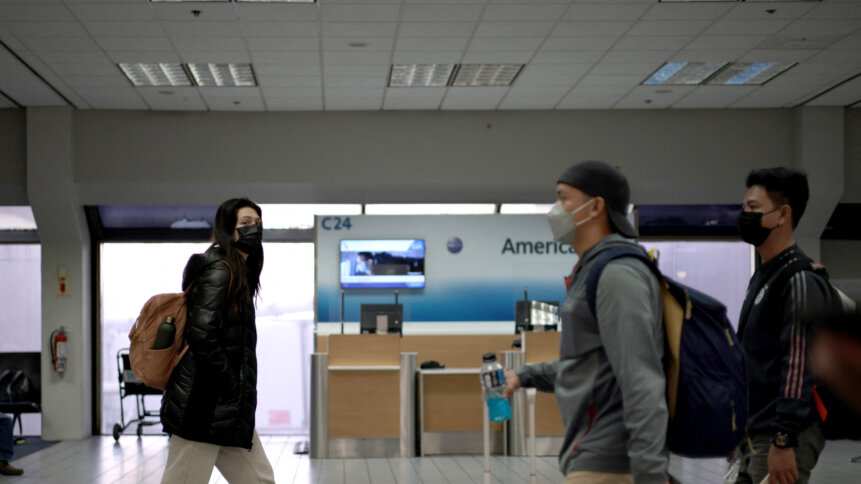Technological momentum will innovate traveling in 2022 and beyond

The travel industry will change dramatically over the next five years as more visitors will be traveling independently and on shorter trips starting in 2022. These changes are will be expedited by new, innovative technologies that make it easier to book flights, find hotels, and schedule activities for trips. At the same time, more people will be booking their own traveling arrangements in 2022 compared to previous years due to global economic uncertainty.
A new report by World Travel & Tourism Council (WTTC) and the Trip.com Group projects strong international spending growth in 2022 and subsequent years. The report predicted that international spending in traveling will overtake domestic spend in 2022, as more destinations ease restrictions (although contagious COVID-19 variants like Delta and Omicron might affect that), and vaccination rates continue to rise.
Numbers have shown that after a steep 69.4% decline (2020) worldwide on international travel expenditure, it rose by 9.3% this year and will increase by 93.8% in 2022. Efforts to contain COVID-19, and to maximize the protection of travelers and those arriving at destinations are currently in the works.
Blockchain revolutionizing traveling in 2022
In recent years, improvements in technology and communication systems have seen innovative travel solutions emerge. Travel firms are always looking for new ways to make the experience easier and more enjoyable for their customers.
Today, technology is making it possible to do things that were never dreamed of before. Blockchain, the technology behind cryptocurrencies is gradually becoming one such technology that is revolutionizing traveling. This is one area that has seen an explosion in innovation, with several companies developing solutions to streamline the travel process.
Blockchain allows travelers to use a single platform to validate their travel eligibility across all airlines, hotels, and other travel providers. One of the largest benefits of blockchain technology today is its ability to increase transparency and security – specifically validating travel eligibility.
Tracking COVID-19 with a breathalyzer
A University of New Hampshire study found that specialized breathalyzers can detect coronavirus particles within air droplets, useful for detecting COVID-infected individuals who are unaware they are infected.
A new type of specialized breathalyzer has been developed to detect covid virus particles at airport security checkpoints. These specialized breathalyzers are based on a technology that can detect a single virus particle in 10 million air molecules. The process works by heating the sample and collecting the vapors released from the sample for testing.
The test is quick and easy, takes only 60 seconds to run, and may soon be put to use by airports and airlines around the world. In 2022, the system may detect an infected passenger prior to traveling, and prevent them from boarding any commercial aircraft.

Across the country, Americans are once again traveling this holiday season despite upticks of Covid-19 cases in many states. (Photo by SPENCER PLATT / GETTY IMAGES NORTH AMERICA / Getty Images via AFP)
The emergence of AI Chatbots
The hospitality industry faced a wave of disruption due to the pandemic. As the travel business becomes more digitized, there is growing demand for hotels to provide better customer service and innovative solutions that will help them stand out among competitors. The most notable example of this revolution seen in recent times is the popularity of chatbots — AI-powered messaging systems that can communicate with customers via text or nowadays, even voice interfaces.
These bots allow hoteliers to give guests more freedom and choice in how they book their room, while also boosting revenue by upselling extra services. Automation also provides insight about the location, such as traffic and weather conditions, or local attractions when prompted with specific questions.
It can help guests plan their itinerary by offering suggestions on what to do when they arrive at the destination. Guests can even submit complaints through the chatbot and receive a response from a human staff member if necessary — or be harnessed to streamline recruiting, like Airbus is doing.
Contactless service meeting customers expectations
Hospitality trends are always moving forward, but there’s something new happening in the hotel industry that might just be a game-changer. The concept of using smartphones as digital room keys is gaining traction with some travel brands. There are many benefits to this type of app.
For example, Marriott International has introduced Mobile Key, an application that gives hotel guests access to their room without having to use a traditional plastic key, minimizing risky physical contact at the same time. Instead, they can use their smartphone or tablet device to check into the hotel and gain entry to the room.
A UK hotel is implementing a similar check-in system, created by tech company Yotel to will ensure that guests do not come into close contact while also doubling as a convenience-enhancer.
Traveling beyond 2022
The ongoing pandemic is undoubtedly the greatest challenge to ascertaining what the future of travel will ultimately look like. The way we travel for pleasure or business is radically transformed, possibly for good.
It is safe to say that the hospitality and tourism industries are focusing on the wellbeing and satisfaction of customers by integrating innovation into their business models. The industry is rapidly evolving into a tech-driven, data-centric business, and the inexorable shift to digital is transforming the way people travel.










